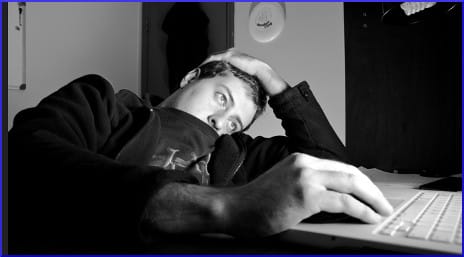
Here is a peek into the process of setting up the trials of Dr. Pretlow’s smartphone app, as he describes it:
Recruiting and engaging youth for our two W8Loss2Go app pilot studies has been extremely challenging. We offered $50 per month compensation, as well as free use of an iPhone 4S for the 4-month duration studies. We do require that prospective recruits complete an application and a motivation questionnaire: But, we’ve found little correlation with the results of this questionnaire and the success with the app program.
There were also exit questionnaires, which produced some interesting answers. The second study included 27 participants. They were asked to rate the relative importance of the possible reasons for joining, and according to their replies, the biggest reason was to lose weight. The second biggest reason was for the financial compensation, and the third was the opportunity to have free use of an iPhone for the duration.
There was also a write-in category for “other” answers. Among them were a desire to gain confidence and a boost in mood, and a wish to find ways to eat better even if it didn’t result in weight loss. The newness of the approach and its apparent convenience were attractive features, and one person expressed a general desire to “feel like i am doing something to help lose weight.”
For an uninvolved observer, it might seem as if every child and youth offered such an opportunity would leap at the chance and regard it as the best thing that ever happened to him or her. If obese kids are as unhappy as they seem — and many indeed are — it seems like they would be lining up around the block for the chance to change their lives, not only for free, but with a little extra reward for their time thrown into the bargain. In proportion to what is offered, the response seems almost tepid.
What is going on?
The same puzzling question appears to exist everywhere, all over the country and the world, where increasing numbers of obese children are morphing into obese teenagers. Sometimes it seems to go beyond a simple lack of motivation, into active resistance.
Is it actual resistance? Or is it just that too much else is happening, an overwhelming flood of physical, intellectual, and emotional demands, to the point where no mental energy remains to deal with this particular issue? And as usually happens in the teen years, the rebellion thing kicks in, and suddenly whatever anybody else tells them is good for them, they’re going to automatically reject just on principle — because that’s what adolescents do.
Thought experiment
Imagine being an obese teenager, dragging along the emotional consequences of childhood obesity: low self-esteem from being teased or bullied; depression, anxiety, and loneliness. In middle school, the odds are good that teasing and bullying will continue. You can’t participate in sports, or psychologically bring yourself to even try. At the beach, everybody else is catching a tan while you’re swathed in a giant T-shirt to hide the rolls of fat. In the summer, sweat pours out and drips into places where you can’t politely swab it in public. In the winter, you can’t find a jacket big enough to fit around your middle and zip up.
Clothes don’t fit, or if they do, you still look like a fat kid. Body parts that aren’t meant to rub against each other do. Chafed skin can be an unrelenting annoyance. Like most kids, you don’t think about diabetes and heart disease, but walking up a short flight of stairs, huffing and puffing, you have a foretaste of what it’s like to be a geriatric emphysema patient.
Visiting at a friend’s house, you sit down and break a chair. If you get on a plane to visit relatives, you have to bring a seat belt extender and put up with a lot of other inconvenience. Maybe you’re old enough to drive, but good luck fitting into a car. Your social life is in the pits, because who wants to date a whale?
To make such a life bearable, the forces arrayed against change must seem formidable and the possibility of change must seem beyond imagining.
Your responses and feedback are welcome!
Image by Leon Fishman

 FAQs and Media Requests:
FAQs and Media Requests: 











